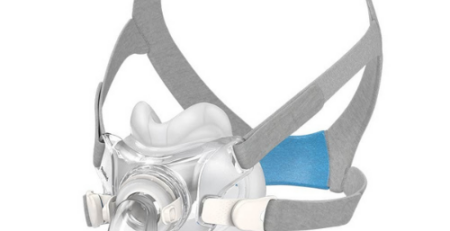Tips for renewing your pillow and sleeping better, not just any pillow will do!
Getting a good night’s sleep is essential for your health and well-being, and the pillow you use plays a crucial role in the quality of your sleep. At CPAP Therapy we’ve put together these 10 tips for renewing your pillow and making sure you’re choosing the right pillow for better sleep – it’s always important and even more so if you suffer from sleep apnea!
Tips for choosing a cushion
1) Know your pillow’s lifespan
Cushions are not designed to last forever. In general, a pillow should be replaced every 1 to 2 years, depending on the material. Feather pillows and viscoelastic foam pillows can last a little longer, while synthetic fiber pillows tend to wear out more quickly. If your pillow has lost its shape or you wake up with neck pain, it’s time to replace it.
2. Evaluate your sleeping position
The position you sleep in is crucial when choosing the right pillow. If you sleep on your side, you need a firmer, higher pillow to fill the space between your head and the mattress, keeping your spine aligned. If you sleep on your back, a medium-thick pillow is ideal for supporting your head without straining your neck. For stomach sleepers, a thinner, softer pillow helps prevent the neck from bending too much.
3. Choosing the right materials
The material of the pillow affects its comfort and support. Memory foam pillows are ideal for those who need firm support that adapts to the shape of the head and neck. Down and feather pillows are softer and more pliable, while latex pillows offer a good balance between support and softness. If you suffer from allergies, we recommend using hypoallergenic pillows made of synthetic fiber or natural latex.
4. Test the firmness
The firmness of the cushion should match your personal preferences and support needs. Try out different levels of firmness before deciding on a new pillow. Remember that the right firmness not only improves your comfort, but also prevents neck and back pain by maintaining the correct alignment of the spine.
5. Check breathability
A pillow that retains too much heat can disturb your sleep, especially if you tend to overheat during the night. Look for pillows with breathable materials, such as viscoelastic foam pillows with cooling technology or feather pillows, which allow for better airflow. You could also consider pillowcases made from natural materials such as cotton or linen, which improve ventilation.
6. Choose the right size
The size of the pillow should suit your body and your bed. Normal pillows are usually enough for most people, but if you have a large mattress or prefer more space to move around, queen or king pillows may be more suitable. Remember that a pillow that’s too big can be uncomfortable if it doesn’t adapt to your sleeping position.
7. Try before you buy
If possible, try out the pillow before you buy it. Many stores offer the option of trying out different pillows on the spot or have generous return policies if the pillow is not to your liking after a few nights’ use. Don’t rush your choice; take your time to make sure the pillow meets your expectations.
8. Consider maintenance
Maintaining your pillow is essential to prolonging its life and keeping it in good condition. Some pillows, such as memory foam pillows, are not machine washable, while others, such as synthetic fiber pillows, can be. Make sure you follow the manufacturer’s care instructions and consider using easy-to-wash protective covers to keep your pillow clean and fresh.
9. Assess your additional support needs
If you have specific problems, such as sleep apnea, snoring or neck problems, you may benefit from pillows designed specifically for these conditions. There are orthopedic pillows that offer additional support or inclination to improve breathing and reduce pressure on the neck and spine.
10. Renew regularly
Finally, don’t hang on to a cushion that no longer fulfills its function. Over time, even the best pillow loses its support and comfort. Make a conscious effort to assess the condition of your pillow every 6 months and renew it as necessary to ensure that you always sleep on a comfortable and supportive surface.
Renewing your pillow is an investment in your health and well-being. By considering factors such as firmness, material, size and your sleeping position, you can ensure that you are choosing the pillow that best suits your needs. Remember that not all pillows are the same and that finding the right pillow can make a big difference to the quality of your sleep and, ultimately, your quality of life. Don’t underestimate the impact a good pillow can have on your daily rest.
Terapiacpap
Latest posts by Terapiacpap (see all)
- Sleep apnea for the newly diagnosed: everything you need to know - 5 de March de 2025
- Restless legs syndrome, what is it and how to treat it? - 28 de February de 2025
- Consequences of not treating sleep apnea: health risks - 21 de February de 2025
- Exercises to strengthen breathing and reduce sleep apnea - 14 de February de 2025
- Tips for renewing your pillow and sleeping better, not just any pillow will do! - 28 de January de 2025














Leave a Reply